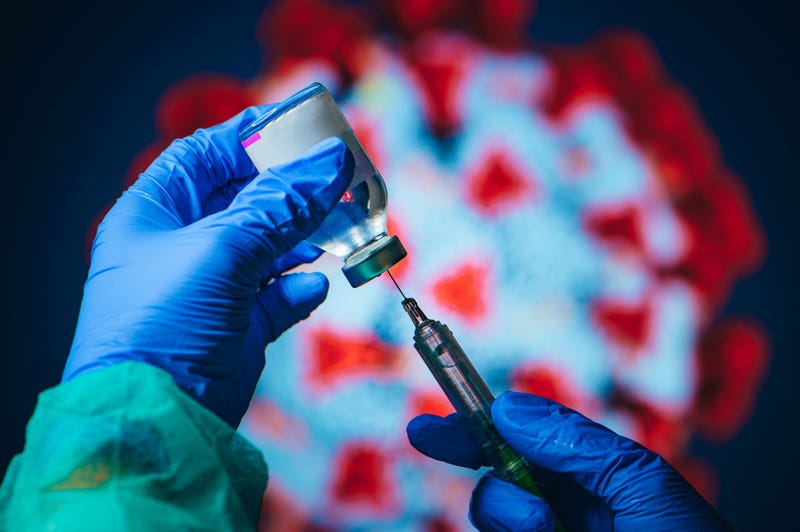
CHICAGO (WBBM NEWSRADIO) -- One in eight Chicagoans over the age of 65 have received their first dose of the COVID-19 vaccine, and one in 17 Chicagoans overall have already received their first dose, the city announced Thursday.
In a Facebook Live Q&A on Thursday, Dr. Arwady said while the city continues to make progress, there’s still a large majority of older adults waiting to get the vaccine.
“Seven in eight [seniors] still haven’t, but that’s going to keep increasing week over week and the data looks good. It’s really showing us vaccine is getting where we need it to get," she said.
“We’re doing a good job of pushing the vaccine into the settings where it’s going to make the biggest difference.”
Dr. Arwady the city receives about 5,7000 doses of vaccine a day - a number that amounts to less than 5 percent of what is needed to vaccinate those eligible in Phase 1A and Phase 1B. And despite the scarcity, Dr. Arwady said about 36 percent of the city’s vaccinations are being given to non-Chicago residents.
“We are pleased to vaccinate people who live in Chicago, who work in Chicago, who get ongoing medical care in Chicago,” Dr. Arwady. But, "we don’t want people broadly driving long distances who don’t have connections to Chicago.”
According to the Sun-Times, some Latino leaders criticized pharmacies in city neighborhoods on Wednesday for giving vaccines to people from the suburbs. Walgreens said while it was working with the city to target vulnerable communities, it does not check residency for those who are eligible to get the shots.
Meanwhile, Dr. Arwady said the city is making an effort to vaccinate communities hardest hit by COVID-19 through the Protect Chicago Plus initiative; aimed to vaccinate predominantly Black and Latinx neighborhoods including Englewood, Lawndale and the Little Village.
“We have a closed point of dispensing, a dedicated clinic for people who live in Little Village or in any of these settings, that again, [is] not open to the general public, made for people who are from that community, who we most want to get vaccinated.”
Dr. Arwady expects a majority of seniors and those in Phase 1B, essential workers and seniors, to be vaccinated in March.

